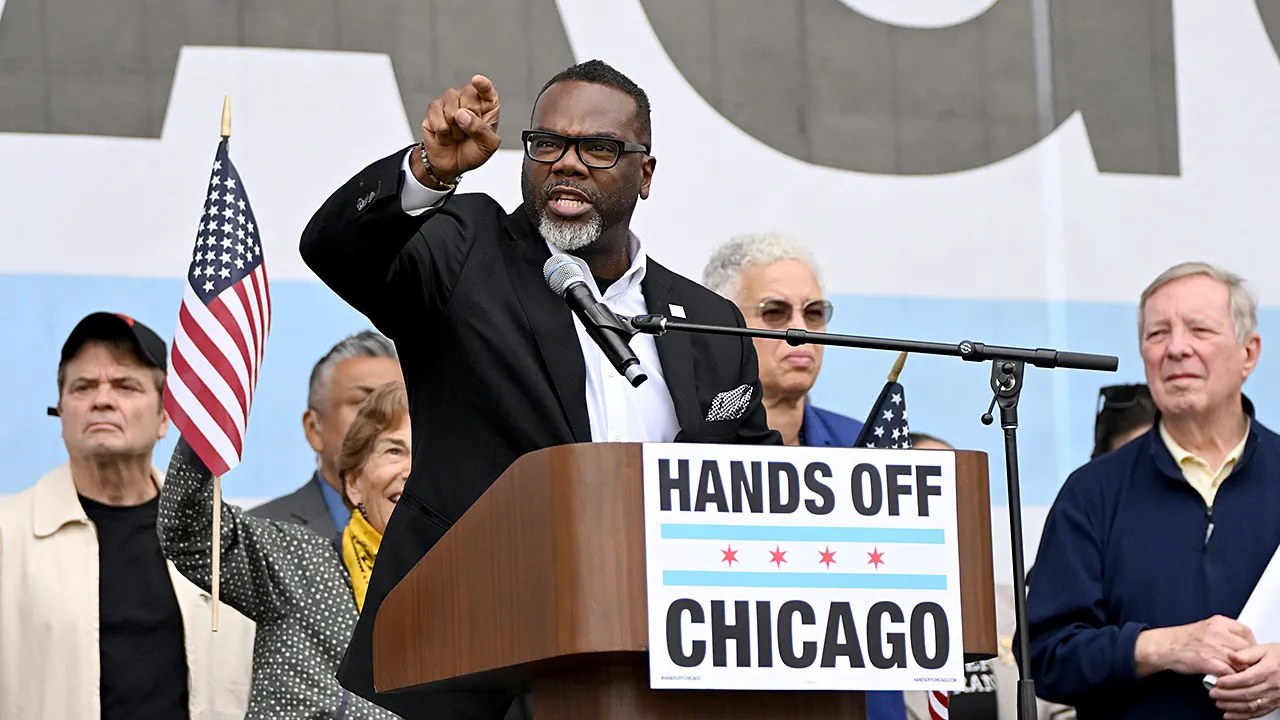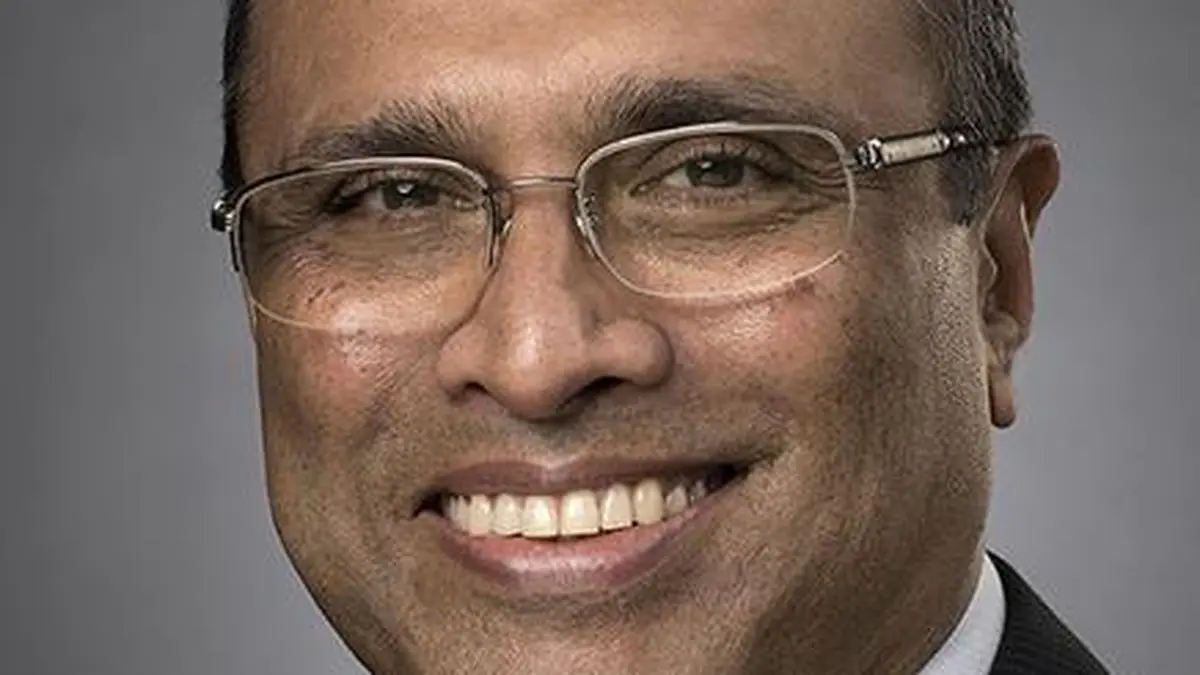Copyright newsroom

In December 2023, a few weeks after the country’s three-way governing coalition was announced, a briefing to the Government arrived. Not from ministerial officials, though. It was sent by an advocacy group with “a supporter base of 100,000 Kiwis and an annual budget of $1 million through a grassroots movement of small dollar donors”. (Part one of this story suggests the “supporter base” is an email distribution list, and 40 percent of its funding comes from donors paying above the $95 average.) The 23-page briefing called on political leaders to prioritise academic freedom, misinformation and disinformation, online speech and hate speech. However, it was clear the Government’s junior coalition partners, at least, were already listening to the group: the Free Speech Union. The coalition agreement between the National and New Zealand First parties promised to “protect freedom of speech by ruling out the introduction of hate speech legislation and stop the Law Commission’s work on hate speech legislation”. This gelled with the Free Speech Union’s exhortations. A parenthetical note in its 2023 briefing said, “…we acknowledge that in the final stages of drafting this advice, the coalition Government committed in its coalition agreement to stopping further work on hate speech laws”. Meanwhile, the National/Act coalition agreement committed to “amend the Education and Training Act 2020 such that tertiary education providers receiving taxpayer funding must commit to a free speech policy”. According to the Free Speech Union’s briefing, it had drafted legislation that “would strengthen protection of freedom of expression in universities, which are effectively public venues”. Twelve months later, in the week before Christmas last year, a law change was announced. Tertiary Education and Skills Minister Penny Simmonds, of National, and Associate Minister of Education David Seymour, the Act leader, said the Education and Training Act would be amended “to strengthen freedom of speech obligations on universities”. Simmonds said universities seemed to have become more risk-averse when they should be promoting “diversity of opinion” and encouraging students to explore “new ideas and perspectives”. “This includes enabling them to hear from invited speakers with a range of viewpoints.” Seymour said there was a “growing trend of universities deplatforming speakers and cancelling events where they might be perceived as controversial or offensive”. “That’s why the National/Act coalition agreement committed to introduce protections for academic freedom and freedom of speech to ensure universities perform their role as the critic and conscience of society.” Months earlier, a report, entitled ‘Unpopular Opinions’, by the New Zealand Initiative think tank highlighted a series of free speech incidents. They included Massey University’s 2018 decision to bar Don Brash, the former National Party leader and head of Hobson’s Pledge, from speaking on campus for his apparently “racist” views. The following year, a controversial Tiananmen Square commemoration at Auckland University of Technology (AUT) was cancelled. The 2023 law change announced by Simmonds and Seymour might have been music to the Free Speech Union’s ears but it didn’t come as a surprise. Months earlier, officials recommended agencies consult university vice-chancellors ahead of more detailed policy decisions “because they would be required to implement any proposed changes”. Thanks to an intervention by Seymour, they also spoke to the Free Speech Union. The Act leader’s interest in fulfilling, and shaping, the coalition agreement promise was obvious the moment briefings started to emerge last year. In June, the Ministry of Education sent Simmonds’ office a “free speech information update”. The update was forwarded to Seymour’s office, which emphasised “the importance of this policy for them under the coalition agreement”. ‘Minister Seymour’s office requested that we engage with the Free Speech Union, given their special interest in this topic.’ Education Ministry briefing, June 2025 Officials wanted to wait for the final report of the University Advisory Group, chaired by former prime ministerial science adviser Sir Peter Gluckman, before undertaking more consultation and introducing an amendment bill. Poor quality decisions, made without consultation, “may result in ineffective legislation or unintended consequences”, and the Crown risked breach Treaty of Waitangi/Te Tiriri o Waitangi obligations to consult Māori. The more prescriptive the policy, the more “fulsome and robust” the process needed to be, officials said. However, ministers wanted Cabinet decisions made by the end of the year. An October 10 memo showed Simmonds authorised officials to “engage directly with Minister Seymour on this issue”. The memo, copied to Education Minister Erica Stanford, said Seymour’s office sent suggested legislative drafting to the Education Ministry. The Act leader wanted to impose a “strong duty” on each tertiary institution’s council to “secure freedom of expression within the law”, and prohibit them from refusing to host speakers for their opinions, or in response to protests. Officials said: “This would go further than any current university freedom of speech policy by not allowing the university any control or ability to set conditions on invited speakers, or speakers seeking to hire university facilities.” Universities risked becoming the centre of public controversies, officials warned, “with negative consequences for their reputations and the overall wellbeing of staff and students”. “A provision that requires universities to host all invited speakers could encompass a range of extreme, but legal, speech, including incitement of hatred against religious and other groups.” Seymour steps in A written briefing to the education and workforce committee in June this year said alongside targeted consultation with vice-chancellors, “minister Seymour’s office requested that we engage with the Free Speech Union, given their special interest in this topic”. (Umbrella group Universities New Zealand was also consulted.) When Newsroom told union chair Stephen Franks, a Wellington lawyer, that Seymour intervened, instructing Education Ministry officials to undertake targeted consultation with his group, he said: “I’m delighted to hear that.” Meanwhile, union chief executive Jillaine Heather says this happened before her “operational time”, when long-time chief executive Jonathan Ayling was still in charge. Heather took over in August. Franks notes Ayling was “very active in making sure he knew who was making decisions and where they were coming from”. Ayling, who remains an union consultant, says by email: “We didn’t lobby to be included in the consultation. It was Seymour’s office’s initiative to include us as a key stakeholder.” The union’s latest annual report said it played a “crucial role in drafting” the legislation. Ayling says the union worked closely with the Education Ministry, in communication with Seymour’s office. “We didn’t draft the precise legislative wording but did provide feedback.” Seymour’s spokesman tells Newsroom strengthening free speech at universities has been Act policy since before the Free Speech Union was created, pointing Newsroom to a 2019 story by 1News. (The union registered as a union in 2021 but started life as the Free Speech Coalition in 2018.) “The policy is important to Act,” Seymour’s spokesman says, “because it is aligned with one of the key principles in the party’s constitution: ‘Freedom of thought, conscience, religion, belief, and expression including the right to adopt, hold opinions, and express those opinions, is essential to a free society and must be promoted, protected, and preserved’. “FSU was not involved in legislative drafting. Our office requested they be involved in targeted consultation because they are the organisation most engaged on issues of free speech and academic freedom on campus. “I would not characterise it as ‘working in concert’, but we did briefly consult them as they’re the organisation most engaged on these issues.” Seymour’s key concern: speakers being ‘deplatformed’ Officials talked briefly with vice-chancellors on October 17, and held more indepth discussions with Otago and Victoria. Auckland and Canterbury gave written feedback. A ministerial briefing from November 4 last year said universities raised “significant concern” about “the policy development process, undermining of institutional autonomy and potential unintended consequences”. Vice-chancellors thought the legislation was an unwarranted imposition. A key concern was speakers seeking to undermine the role of universities as institutes of higher learning: “speakers looking to advance unscientific theories and leverage off the reputation of a university as a host institution”. However, universities generally agreed they should take an expansive approach to free speech responsibilities. The Free Speech Union’s stance was nuanced. It advocated for “relatively expansive” amendments to legislation, but said targeted changes were worth progressing “over the shorter term”. The union called for changes to Te Tiriti provisions in the Education and Training Act, and for a new statutory office to be established “to set expectations for free speech, and oversee compliance”. Institutional neutrality was critical, the union said. If the university took a position on, say, the Israel/Gaza conflict, “it can create an atmosphere where academics and students who hold contrary views feel unable to express them freely”. Free speech is a balancing act, officials told ministers. “Our discussions with the Ministry of Justice and the Human Rights Commission highlighted concerns that the proposed changes may be perceived as suggesting that freedom of speech has primacy over other human rights, which is not in line with human rights law and practice.” Seymour didn’t think the approach recommended by officials was strong enough. According to a briefing from November 7, Seymour thought standards set in legislation should be clearer or falsifiable. “Following feedback from minister Seymour, we have provided advice on more prescriptive requirements for university freedom of speech policies, and on options to strengthen monitoring and redress arrangements.” The Act leader’s key concern was preventing speakers from being “deplatformed” at universities. “His office has highlighted some potential requirements drawn from recent legislation in the United Kingdom, including requiring universities to allow use of premises without discrimination based on a speaker’s opinions and prohibiting universities from requiring speakers to cover security costs.” Another briefing, from November 22, noted Seymour’s feedback on a draft Cabinet paper that university performance should be externally audited. Officials suggested an enforcement or penalties regime could be introduced if universities didn’t comply. Simmonds quizzed officials as to why penalties for non-compliance with free speech standards couldn’t be tied to funding. That would require the funding agency, Tertiary Education Commission, to undertake a compliance role, officials said – “you previously agreed with our advice that the TEC should not have such a role”. Aren’t these changes imposing red tape on universities? The Ministry of Regulation thought so. It suggested dropping the reporting, complaints and dispute resolution elements from the Cabinet paper. The bill’s Regulatory Impact Statement, finalised on December 2, said while there had been public debate about free speech issues at universities and academic freedom, “we lack clear evidence of the accuracy of these concerns and the scale and impact of any problems”. Māori were not consulted. There was no consistent data, and “individual controversies tend to be highly contested and politicised”. But even limited evidence was enough. A quality assurance panel said despite time constraints officials provided a useful and clear analysis. You can see how closely the proposals announced by Seymour and Simmonds, hammered out with officials over a frenetic few weeks, accord with what the Free Speech Union called for. A Cabinet paper from December last year details the proposed changes: Require each university to develop and adopt a freedom of speech statement; Introduce a duty on university councils to protect and promote academic freedom and freedom of speech; and Require universities to publicly report on academic freedom and freedom of speech in their annual reports, to effectively monitor performance, and record the number and nature of complaints. To ensure transparency and external scrutiny, universities would be required to survey staff and students and publicly report their findings. This replicates and expands the work of the Free Speech Union. Simmonds’ Cabinet paper said: “After enactment of this legislation, I will monitor universities performance on these issues and consider whether additional oversight or enforcement mechanisms are required.” (Actually, it wont be Simmonds. In January, Shane Reti was installed as Universities Minister.) The Free Speech Union briefing to the incoming government in 2023 recommended: Further monitoring of, and research on, the current state of academic freedom inNew Zealand; Explore options for enforcing universities’ academic freedom obligations, and incentives forthem to better protect academic freedom. “The FSU is exploring policy and legislative options to enhance academic freedom including: requirements on universities to promote and protect academic freedom,enshrining institutional neutrality and universities as the guardians of free inquiry,establishing free speech champions, and considering enforcement, incentive and complaintmechanisms.” A long time coming Speaking during the Education and Training Act amendment bill’s first reading in Parliament in May, Act MP Parmjeet Parmar said it was something her leader had campaigned for a “very, very long time”. “This is a very positive step, because what we have seen in so many cases at so many universities is that universities somehow have taken that kind of protective approach towards staff and students and they have been censoring some speakers from coming and speaking at university campuses. This kind of woke censorship needs to be reversed.” Labour MP Shanan Halbert asked: “Tell me where a university or tertiary institution in this country has said that they want the Government meddling in their business, overreaching and making a decision about who can speak at their university? There is none.” Forty percent of submissions, or 136, opposed the bill. Many submitters described it as Government overreach into university autonomy, and politically motivated. The Education Ministry’s departmental report, published in July, summarised: “Submitters focused on the unnecessary nature of the changes, risks to academic freedom and erosion of university autonomy, concerns about safety and impacts on marginalised communities, and views that the changes were contrary to te Tiriti o Waitangi/Treaty of Waitangi.” Seymour’s spokesman tells Newsroom: “We’re happy with where the bill is at.” What did academics say? University of Canterbury’s Jack Heinemann, a professor of molecular biology and genetics, has taught about academic freedom, and written articles on the topic. He was an expert witness on academic freedom in the Employment Court, serves on the university council, and helped in crafting its grandiosely titled (and recently reviewed) ‘Critic & Conscience of Society and Academic Freedom Principles and Policy’. Heinemann’s written submission supported the bill’s intent but didn’t think it was needed. The university’s mission was “more specialised and technical than a soapbox”, he said. The proposed amendments “undermine institutional autonomy and consequently academic freedom”, he said. “It has also not escaped attention that those most contrary to regulations and bureaucracy desire more of both when it comes to universities. The proposed changes would discriminate against the university compared to the rights of any other body corporate.” Heinemann says the Free Speech Union interprets academic freedom as being an individual right. He disagrees. “It’s an institutional right, and it means that you are, while you are a member of that scholarly community, free to contribute, seek and disseminate knowledge freely, and ultimately, at least in New Zealand, with one of the outcomes being service to society as its critic and conscience.” Another academic submitter to the bill was Carwyn Jones (Ngāti Kahungunu), the kaihautū (director) of the Whare Whaktupu Mātauranga at Te Wānanga o Raukawa. “This bill is another example of the coalition Government’s approach to law-making, which ignores evidence and research and instead simply pursues a racist and bigoted ideology at the expense of positive outcomes for New Zealanders.” The Law Society said universities “need no reminder of what their mission is”, while the Tertiary Education Union said the amendments set a concerning precedent. “Rather than academic norms being upheld through institutional independence and established legal protections, the bill opens the door for governments to define, limit, and shape the parameters of academic freedom and freedom of expression through political processes.” In its submission, InsideOut Kōaro, the national rainbow charity, said: “… we fear that this proposal would most certainly be used to enable the platforming of groups and speakers who discriminate against marginalised members of society, such as Māori and transgender people.” While this story focuses mainly on free speech and academic freedom at universities, the Free Speech Union’s 2023 briefing to the incoming Government stated broader aims. It called for a halt to “all work on the Department of Internal Affairs’ online content regulation proposals”. How did that go? The department’s digital violent extremism team was established in 2020 to monitor and take down objectionable content. At that point, there were six permanent roles and one fixed-term role, deputy secretary of regulatory and identity services Rachel Leota told Newsroom in August. “The name and size of the team has changed a number of times since 2020. “Currently the digital violent extremism team is made up of five roles, one of which is fixed term. There is also a change proposal that would see the role of the team manager expand in scope from December this year.” The Free Speech Union briefing also called on the Government to terminate funding to groups such as the Disinformation Project – “that use the terms mis- and disinformation to stigmatise, delegitimise or suppress views with which they disagree”. In October last year, the union called the project’s closure a “win for free speech”. Ayling, the then chief executive, said it represented “so much of what is wrong with the censorship culture” in democracies like New Zealand. Who benefits from its demise? The project itself had a view. Its mothballed website said disinformation networks established or expanded during the pandemic were “deeply connected to far-right, neo-Nazi, and accelerationist networks and actors – both domestic and foreign”. “Gaps in legal, regulatory and policing frameworks allow for harmful, polarising narratives to (conservatively) reach hundreds of thousands of New Zealanders daily.” Law professor Alexander Gillespie, of the University of Waikato, told The Post newspaper in October last year: “Their pouring of light into difficult and angry situations, has been some of the best disinfectant I have seen in New Zealand.” Asked about the success rate of the policy requests in its 2023 briefing to the Government, Heather says she doesn’t know, “but that would be a fascinating statistic”. Similarly, she admits to not being across the detail on where the Education and Training Act amendment bill has landed. Franks says he only skimmed it. “You’re obliging me to look at it,” he says. “We wanted it to have a right of civil action by people whose speech had been infringed with damages against the individuals. So we wanted it to have much sharper teeth.” There’s a general election next year; another chance for the Free Speech Union to brief an incoming government. What can we expect from them? The usual cases and campaigns, Heather says. But in election year, “I do have quite perhaps optimistic or aspirational goals of trying to encourage constructive conversation in some way – trying to encourage engagement, trying to encourage diversity of viewpoint”. “I don’t know quite how we do it, but to stop us from doubting each other from the sidelines and the polarised environment we seem to have inherited.” Franks says cases will emerge naturally, and it has legislative amendments up its sleeve, including one related to the Harmful Digital Communications Act. He adds: “We want to see councils obliged to be non-partisan in their control of facilities where people speak and access to the town hall. We definitely want to see professional regulatory bodies reined in and we’ve got a bill for that.” If next year’s election is anything like those in Britain, the United States, and Canada, culture wars will be significant, Franks predicts. “We’ve been lucky in New Zealand where we’ve had a series of prime ministers that people couldn’t or didn’t hate, but the culture war issues do polarise. If one of the parties picks up the Law Commission’s report, for example, on transgender, we’ll be in there.”



